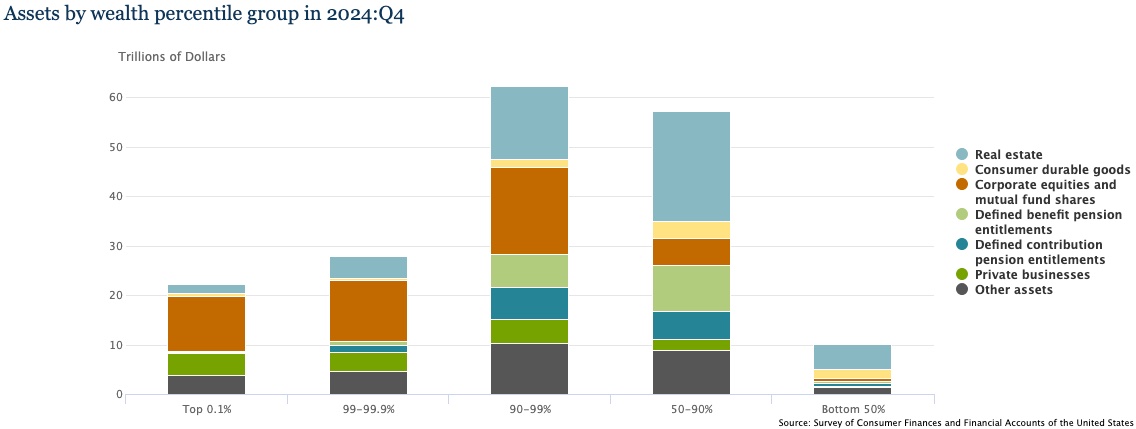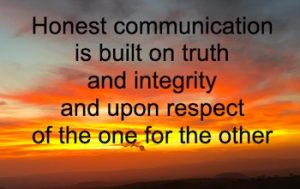Startup Ethical Integrity To Do Good and Well Empathy Outshines Control
Startup Ethical Integrity To Do Good and Well: Entrepreneurs must focus their creative energy on products and markets, but without purpose their chances of surviving and thriving are diminished. New entrepreneurs who set ethical policies for their startup demonstrate empathy and are part of the effective movement to change business for good. Empathy outshines control.
“Ethical integrity originates in empathy, for then we take the well-being of others to heart and  are moved to be generous and caring. Our thoughts, words, and deeds are based on a sense of what we have in common rather than what divides us”1.
are moved to be generous and caring. Our thoughts, words, and deeds are based on a sense of what we have in common rather than what divides us”1.
For new entrepreneurs, the critical part of this quote is establishing how to frame, implement and measure outcomes of ethical policies for the startup. The ‘integrity’ part is maybe the toughest of all, since it’s about how things actually turn out, notwithstanding the ethical intent. Control issues should be for good housekeeping, not business intent.
In the US, “we the people, by the people for the people” is a key tenet of democracy. If corporate person-hood exists, then it would seem logical that ethical integrity would be natural to any American business.
However, the staggering concentration of wealth in the hands of the top 0.1 per cent2, especially given that the top 1 percent of people own 50 percent of corporate equities and mutual fund shares3 suggests to me that the notion of neither ethical integrity, nor empathy is likely to be deep set in the values of those people, mostly white men4.

There were 801 billionaires based in the United States in 2024, with a combined wealth totaling $6.22 trillion5. Even if the ‘Citizens United’ decision of the Supreme Court conferring ‘person-hood’ on corporations was overturned, they would still not have the purpose of concentrating such a huge proportion of US wealth in the hands of those billionaires.
Startup Ethical Integrity—Entrepreneurial Empathy or Control
 A founder whose main aim is to accumulate personal wealth will demonstrate control, whether intended or not. Empathy is unlikely to be exhibited by such a founder’s startup, whatever claims to the contrary are made by strategic intent is set out in the business plan. The concentration of wealth shown in the data and the impact on social inequity has led to distressing differences in the economic expectations of the majority of the population.
A founder whose main aim is to accumulate personal wealth will demonstrate control, whether intended or not. Empathy is unlikely to be exhibited by such a founder’s startup, whatever claims to the contrary are made by strategic intent is set out in the business plan. The concentration of wealth shown in the data and the impact on social inequity has led to distressing differences in the economic expectations of the majority of the population.
Such greed and lack of both empathy and ethical integrity inside and outside a startup led by such a person is less likely to attract staff, customers, suppliers, and other stakeholders, who themselves aspire to exhibit and experience empathy themselves. Generosity is a natural consequence of empathy. Participative strength will outdo authoritarian power and control.
Startups are created by entrepreneurs for a multitude of reasons. However, my guess is that most do so because they cherish the freedom of following their passion, much more that the pursuit of wealth. Other less material motivations exist, too. They include those having a ‘ah-ha’ moment about a gap in the market, responding to a community or social goal, living an autonomous work/home life, investing in themselves and family, or making a contribution to a better way of being in the world.
If the founder imagines the startup as a person, chances are high that startup ethical integrity will show in behaviors that attract both highly motivated collaborators and satisfied customers, as a consequence of that empathy and generosity.
The extractive greed exemplified by the wealth data cited above, contrasts strongly with the opinion of ancient philosopher Plato, that the richest should own no more property than four times that of the poorest. More recently, J.P. Morgan, the famous American financier, believed that executives should earn no more than 20 times the pay of the lowest-paid worker.
The import of such advice about fairness from the past still holds good in principle, but it is very difficult to conclude the right ratio to apply these days. However, it is one of the strategic decisions that will underpin startup ethical integrity.
Decide on Purpose and Evaluate Practice of Critical Values
“Purposeful companies create value”, wrote Mike Carney6, who became Prime Minister of Canada on the resignation of Justin Trudeau. He added that “Purpose is fundamentally a question of value and values.” An economist, career banker and climate advocate, he went on to question the purpose of a company, and “Who owns it? To whom is it responsible? Over what horizon? How dependent is it on its operating environment? And what contribution does it make to the communities in which it operates?” Carney also states that companies, “have a deep interest in and share responsibility for the economic, social and environmental systems in which they operate.”
There are many ways that critical values are purposefully or unwittingly exemplified is both company intent and daily operations. Here are some of the most important that follow from startup ethical integrity:
Interdependence: All living things on the planet are interdependent, often without awareness. As a person, you are much more likely to know when you experience either dependence or independence. It becomes obvious, though, in a game of the block building game, ‘Jenga’, when a player removes a piece and the whole tower tumbles down. Startup ethical integrity will help keep the entrepreneurial ‘tower’ standing upright.
likely to know when you experience either dependence or independence. It becomes obvious, though, in a game of the block building game, ‘Jenga’, when a player removes a piece and the whole tower tumbles down. Startup ethical integrity will help keep the entrepreneurial ‘tower’ standing upright.
Founders, or at least successful ones, know many things, but their avid concentration on the essentials may not have them paying too much attention to abstract concepts beyond their immediate vision. Reflection and an acknowledgment of interdependence, however, will lead to many outcomes that both avoid difficulty and enhance performance.
Respect: You might not expect the word respect to figure in a discussion about successful entrepreneurship. However, both the embodiment and demonstration of respect are key to startup’s formation and progress. Respect is often thought of as behavior that is respectful to others. When dealing with colleagues or others, however there is also the importance of respect for their autonomy, as well as social and environmental issues.
The connection also implies a two-way process involving both parties to a transaction or relationship; it implies mutual respect. In other words respect cannot be expected if you are not respectful to the other party, no matter their position in a hierarchy or place in society.

Whose bottles are these?
Responsibility: If the individual is respected, then likewise, the person has a responsibility to others on the planet. If your manufacturing startup, for instance, pollutes the river downstream, then why on earth should those downstream impacted by that pollution not remove it from their location and dump it on yours?
Irresponsible environmental behavior carried to extreme would result in the planet becoming unlivable for people and animal or plant life. This is not a matter of conjecture. For this reason, the danger of microplastics in food, just as an example, implicates many members of society. First are the unaware buyers and consumers of the tainted food, and those who dispose of the waste. But most of all it’s the food and packaging scientists, producers, suppliers; if you reflect upon the chain, it involves almost everyone in society. Governments set the rules (hopefully), voters elect government… and so on down the scale to me.
Honesty: “Transparency and honesty are not only ethical values, but also strategic advantages for startups in the competitive business world. By being transparent and honest, startups can build trust, loyalty, and reputation among their customers, employees, investors, and partners.” This sounds like building self-respect.
The 2024 quote is from Faster Capital and is not a liberal fantasy, but from a magazine concerned with business finance—hard issues, not soft ones. It implies that startups with ethical integrity do good and well. Honesty applies to all outcomes, whether positive or negative. Withholding truth even if it’s bad, does not benefit the company.
Ownership: Wow—this can be a very difficult topic for startup founders, especially those seeking external investment. There’s plenty of legal advice out there on the allocation of equity and profits, depending on the business statutes and structure. From an ethical integrity point of view, there is a whole can of worms wriggling around. Who deserves what, why and how will distribution impact all the company values. What is involved in the power of ownership and how it is exercised? Are the founders open about both finances, their sources and allocations?
In my main startup, my co-founder and I shared performance data with everyone in the company. Indeed, once we were profitable, all members of staff discussed and agreed the allocation the ten per cent of pretax profits going to community non-profits. The biggest chunk of profits were re-invested in the business. When the founders left the business after eleven years, we transferred our equity to the employees for one symbolic Pound Sterling.
Recruitment: Successful recruitment is hard enough, but the way founders use value judgements both about the kinds of people to recruit and the means of human evaluation to be used in the hiring process, is much harder. The performance evaluation process, once people are hired, is even tougher.
My co-founder and I agreed several practices to use in appointment decisions as a demonstration of the sort of business we were. When a short-list of candidates was established, we explained the process that included not only the interview and references, but also why we used the Myers-Briggs Type Indicator7 and other evaluation tools. As part of the final interviews, shortlisted candidates were invited to make a presentation to existing members of staff (any who wished to attend) about anything they thought would be a hiring clincher.

Benjamin E Mays, Martin Luther King’s mentor
Communication: We communicate inside and outside the company intentionally, but also without meaning to. The founder is often so preoccupied that actions are taken without reflection, but even the growing business does things in the way of business that send messages by mistake. In either case, the venture needs to ensure honesty and transparency, preferably before, but certainly after the event.
The veracity of claims about product characteristics, responses of customer service representatives, or descriptions of the corporate mission may be open to question. This probably results from inadvertent communication.
Community: The startup is interdependent with many people in the community outside the business, as well as colleagues inside. Regeneration and the circular economy are becoming more widely practiced and there are burgeoning controls ensuring that polluters pay. Social responsibility was not a term when I started work in the 1960s, but for reasons of justice it is now common parlance.
Beyond good business practice, the startup’s survival depends on being a good neighbor and meeting society’s expectations. Leaving others to clear up the mess the startup may create, is one thing in terms of the environment, social pollution can also be created. Paying below a living wage or refusing maternity/paternity leave are also a negative output of the business.
Accountability: A lack of accountability by the startup indicates disdain and insensitivity towards all their stakeholders. Accountability, whether personal or corporate requires a policy of ‘do no harm’ in the first place, but just think of a large company you have heard of that cried that phrase from their rooftop. Practice must reflect policy.
The startup has to consider the implications of accountability and not only claiming it, but to have ways to ensure that everyone in the venture both understands the meaning and operation of the word. In fact, showing beneficence in daily operations might prevent the need for accountability, by doing less harm in the first place.
You can learn more by reading what I have to say particularly about ethical entrepreneurship, but also by browsing through Diversity, Equity and Inclusion in Startups (DEI), a subject under much debate, as well as Company Social Responsibility (CSR) and Economic, Social and Governance (ESG).
- A quote from “Buddhism Without Beliefs,” by Stephen Batchelor.
- Federal Reserve 2024/Q4.
- Federal Reserve Bank of St Louis March 2025.
- I am a white man.
- Inequality.org referring to The Institute for Policy Studies analysis of the Forbes Real Time Billionaire List, 2024.
- In his book, Value(s): Building a Better World for All, 2021.
- The Myers-Briggs Company is a B Corporation.




